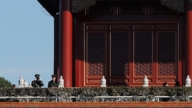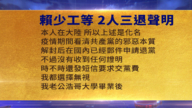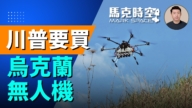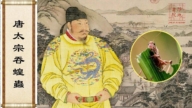【新唐人2012年7月13日讯】美国杂志刊登文章提出,最近出现了一个“新专制轴心”的大国集团,它们害怕民主与自由,害怕美国和西方的实力与影响。这些国家站在了历史、政治和经济的错误一边,它们可能给国际社会带来动乱。但是,学者认为,这个“专制轴心”没有共同信仰,只是一个利益集团,所以很不牢固,也很难真正给国际社会造成动乱。
新一期的美国《外交》杂志发表了《一个专制轴心正在崛起?》(An Authoritarian Axis Rising?)的文章。文章认为,近几个月来,许多专制国家正在表现出相互抱团这种令人不安的趋势,它们不是“邪恶轴心”,但是会给国际体系带来混乱。
文章说,这个群体目前包括中国、俄罗斯、伊朗、朝鲜、叙利亚和委内瑞拉。
文章认为,这些专制政府普遍存在两种恐惧:一种是它们对民主和自由的明显恐惧;另一种是,这些专制政权对美国和西方的实力及影响力的恐惧。
实质上就是,西方的民主价值观、特别是政府与社会的透明,给这些专制、压制性政府的生存带来了威胁。
《外交》杂志指出,这些专制轴心国家在国内都面临着民众强烈的反对,也都对本国人民施以重压。比如,俄罗斯就逮捕了一些反对派领导人;中国也经常逮捕或侵扰异见人士;朝鲜设立了造成成千上万政治反对派死亡的集中营;伊朗向抗议者开火;叙利亚动用直升机、坦克和大炮对付政治反对派,致使多达一万人死亡。
文章还认为,最近,专制轴心成员国越来越多的在外交政策上采取协调一致的行动。如中国和俄罗斯投否决票,使联合国无法通过制止叙利亚政府杀戮本国人民的决议﹔中俄还一致反对加大对伊朗制裁力度等等。目前,这些“专制轴心”还加强了军事协调,这都给亚太、印度洋与太平洋、欧亚大陆以及全球都带来了非常明显的影响。
不过,原纽约州立大学教授谢选骏认为,由于这些“专制轴心”国家没有真正的共同目标,不能形成真正的联盟,它们只是要求西方不要干涉他们的内政,以保护他们的专制权力而已。
原纽约州立大学教授谢选骏:“这些国家很难给国际社会造成真正的动乱,因为它们没有可以取代西方的技术,他们没有最好的技术,所以他们很难和西方构成真正的对抗。当然,他们的反西方倾向,可能造成一些动荡。”
“中国社会民主党”中央委员会主持人刘因全也认为,“专制轴心”不可怕,因为他们没有共同的信仰,只是一个利益共同体。当利益发生变化的时候,他们就会松散、甚至瓦解。现在就可以看出,中俄之间有矛盾、中朝之间也有矛盾,所以这个“轴心”并不牢固。
但是,刘因全指出,从国家和民族利益考虑,中国不应该加入这个专制中心。
刘因全:“对中国最有利的格局是什么呢?就是“远交近攻”。中国应该和美国和欧洲建立密切的关系,特别是和美国建立密切的关系,包括建立密切的经济关系,甚至军事方面密切交流,在政治上尽量的避免对立,求同存异这个方面发展。”
刘因全呼吁建立“中美经济互利体”,他认为这对改变中国政治黑暗和政治腐败是有好处的,对改变中国高科技落后、“只是一个加工厂”的格局也是有好处的。而用战争和对抗的思路,还可能走回德国、日本的战争之路。
《外交》杂志也承认,如果西方国家联合起来,有效应对这一挑战,也许会看到专制国家走上穷途末路。
采访/常春 编辑/宋风 后制/钟元
US Media: China’ & Russia’s “Authoritarian Axis”
A new term of “an Authoritarian Axis” was coined recently
by U.S. magazine’s article.
The term refers to a group of states which fear democracy
and freedom, the power and influence of US and the West.
These states are deemed to be on the wrong side of history,
and may bring turmoil to the international community.
Scholars think that the axis group is not faith-bonded,
but rather a fragile interest group.
Thus, it is hard for them to truly create unrests in the world,
comments say.
The Diplomat’s article “An Authoritarian Axis Rising?” talks
about the emergence of a new group of authoritarian states.
It isn’t the “axis of evil,” but “can only inject turmoil into
the international system,” according to the article.
The axis members reportedly include China, Russia, Iran,
North Korea, Syria, and Venezuela.
The author thinks that these authoritarian regimes
have “two common fears.”
“One is their apparent fear of democracy,
freedom, and liberty.”
The other is fear of “the power and influence
of the U.S. and the West.”
Simply put, “democratic values, particularly transparency in
government and society, put at risk the survival of these authoritarian, repressive governments.”
These states are said to “face serious levels of domestic
opposition” and “impose burdens on their own people.”
“Russia, for example, arrests opposition leaders”;
“China, likewise, arrests and hassles dissidents”;
“North Korea operates a vast network of concentration
camps,” triggering thousands of deaths, and millions who suffer from malnutrition.
“Iran fired on protestors”, while “Syria uses helicopters,
tanks, and artillery to fire on the political opposition, killing perhaps as many as 10,000 people.”
“Increasing foreign policy coordination among the axis
members” has been seen, the article states.
Such as China and Russia, both used their vetoes to block
the UN resolution against the Syrian regime’ killing civilians;
“Beijing and Moscow consistently oppose expanded
sanctions against Iran for its nuclear program,” it says.
And “in terms of military coordination, ties have run deep
for years” among these axis member states.
“This has obvious repercussions in Asia-Pacific/Indo-Pacific
and Eurasia as well as globally,” the article comments.
Xie Xuanjun, State University of New York’ former professor,
says that these axis members have no common goal, thus cannot form an alliance in real sense.
Through requesting the West not to interfere in their internal
affairs, these authoritarian regimes just want to ensure their own survival, professor Xie remarks.
Professor Xie Xuanjun: “For these states is hard to create
a real turmoil in this world, as they aren’t technologically superior to the West.
So it’s hard for them to confront the West countries in reality.
But their anti-Western trend may cause some turbulence."
Liu Yinquan, chair of Social Democratic Party of China,
thinks that the authoritarian axis is based on interests.
The non-faith based bond will soon be loose or even
collapse upon the change of interests, he believes.
At present, there are conflicts shown between China
and Russia, between China and North Korea.
So this Axis is not that solidly fastened,
Liu comments.
He points out that China should not join this autocratic pool
when taking into account its state and national interests.
Liu Yinquan: “What’s the best pattern for China? It’s to
“befriend with distant states while attacking those nearby.”
China should set up close ties with the U.S. and Europe,
especially the U.S., in areas of economy and even military.
It should try to avoid confrontation in politics, and take
the path of seeking unity while preserving diversity.”
Liu appeals to form “Sino-US economic Combo”, which will
help change China’s dirty politics and corruption.
The combo will be in favor of updating high-tech in China
and removing the label of “World’s Factory”, thinks Liu.
He warns, if China still resorts to war and confrontation,
the country will be led back to the road of war, which was experienced by Germany and Japan.
“If the West organizes itself to deal effectively with this
challenge, we perhaps might see the last gasp of authoritarian states,” the article suggests.



























